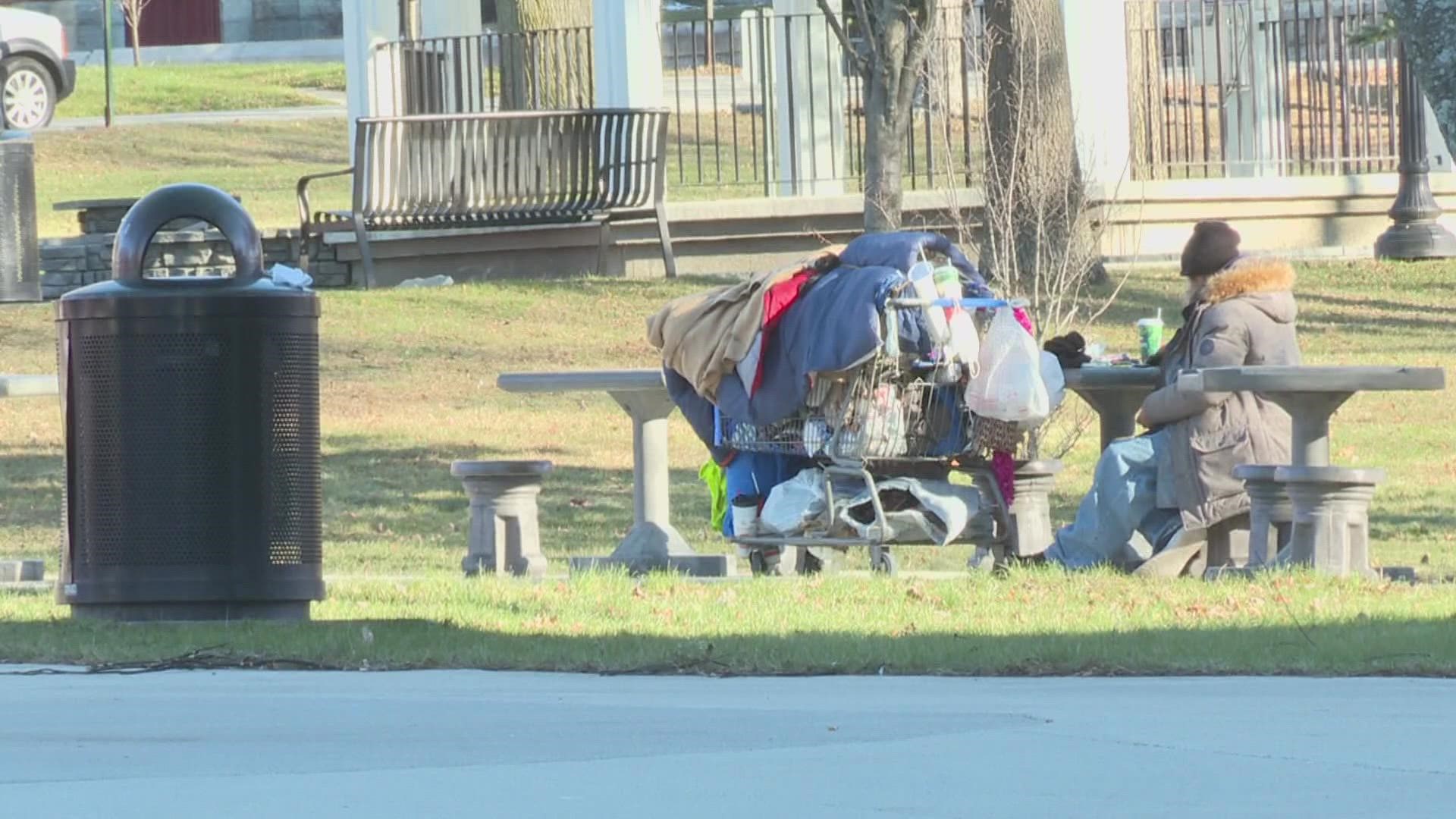LEWISTON, Maine — The future of a temporary winter shelter in the Lewiston-Auburn area is unknown as both the municipalities and Androscoggin County are split on how it should be funded.
"With temperatures dropping, we need to get these shelters set up immediately," Auburn Mayor Jason Levesque said.
According to Levesque, earlier this fall he and Auburn leaders approached the Androscoggin County Commissioners with the plan to build a community of small, modular homes that could house up to 48 individuals experiencing homelessness in the area.
Levesque said, however, that the county has only offered to pay about half of what is needed.
"These are people's lives," Levesque said. "So that's where the disconnect is. We're not sure why the county government is shirking their responsibility to actually help people in the county."
Levesque said it was proposed to Androscoggin County to cover roughly $1 million in costs associated with buying the units and establishing the community. Levesque said Lewiston and Auburn would cover more than $500,000 in operating expenses.
Androscoggin County Commissioner Chair Sally Christener was unavailable for an interview Tuesday, however, she told NEWS CENTER Maine over the phone that commissioners agreed to pay $661,000 to cover the cost of purchasing the units and having them shipped to Maine.
Christener added that the county has roughly $5.3 million of American Rescue Plan funds to allocate, and more than $6.3 million have been requested.
"I would like to find a solution soon. With the temperature below freezing last night and the colder weather coming quickly, I really would like to find a way to stand up a temporary winter shelter for our unhoused residents," Lewiston Mayor Carl Sheline said.
Sheline said he's hopeful funding can be found to help establish a temporary winter shelter.
"I'm really grateful for the amount the county has already committed, and I look forward to discussions to address the shortfall," Sheline said.
It's unknown where any additional funding for the project would come from, or where it would be located if funded. Levesque said, however, it would likely be located in Lewiston. Levesque also calls the problem a regional one, and many of those experiencing homelessness in the region came there from other parts of the state.
"You can't just shift the responsibility onto local municipal governments, we don't have the money, we don't have the resources. They have the resources, they need to use them for what they're intended for," Levesque said.

